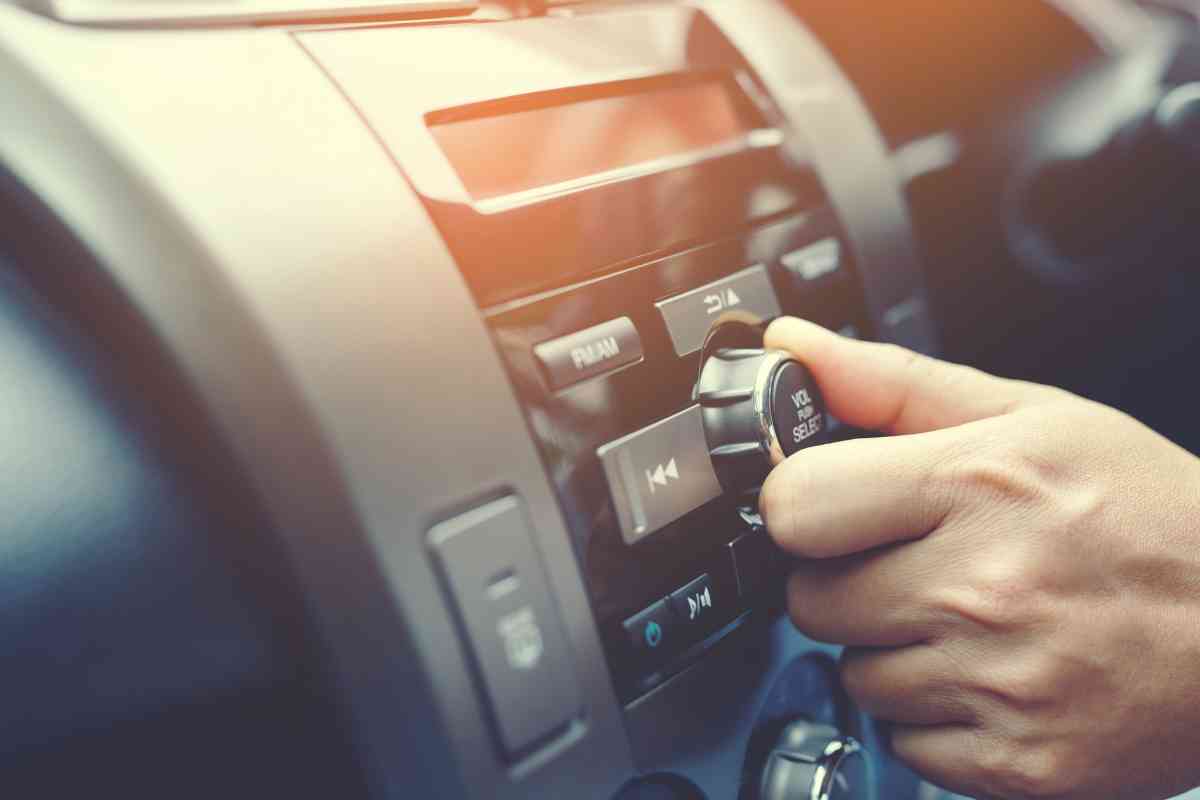Car speakers cutting out at high volume can be frustrating and detrimental to your listening experience.
Understanding the reasons behind this issue and how to fix it can help you enjoy your music without interruptions.
Several factors can contribute to speaker cut-outs. We will address the common question of why do car speakers cut out at high volume and how to fix it effectively.
Why Do Car Speakers Cut Out at High Volume
The primary reason car speakers cut a high volume is due to issues with the Amplifier. Today’s car amplifiers have a built-in protection circuit that activates when the amplifier is pushed beyond its limits.
If you experience your system cutting out at high volumes, it indicates that something is triggering the amplifier’s protection circuit.
Along with Amplifier related problems, here are other reasons why your car speakers will cut at high volume
1. The Gain Knob Is Too High
The gain knob on your amplifier plays a crucial role in controlling the incoming signal from your radio or receiver.
Setting the gain too high on your amplifier can lead to problems when you increase the volume on your receiver.
It is not a volume control knob, as it does not directly adjust the output volume. Instead, it modifies the strength of the signal sent to the amplifier.
When you adjust the gain knob, you may notice a volume change, but that is because it affects the incoming signal strength.
The amplifier will attempt to amplify the signal as much as possible, even if it exceeds its power limits. This can cause distortion and harshness in the sound or damage your audio equipment.
2. Overheating of the Amplifier
As temperatures rise, especially in the trunk where amplifiers are commonly installed, issues can arise due to inadequate ventilation.
The amplifier already be hot in the trunk even before playing music, as the lack of airflow can cause heat buildup.
The amplifier can become even warmer when playing loud music, potentially triggering the protection circuits and causing it to shut down.
Even if you place the amplifier under a car seat, which provides an air-conditioned space, it can still lack ventilation if it is tightly fitted.
3. Damaged Speakers
If the speakers are blown, it can cause the car speakers to cut out at high volumes.
Speakers can get damaged due to excessive power. When the speaker voice coil is blown, it can either result in an open circuit or cause a short circuit.
To determine if a speaker is blown, you can use an ohmmeter. A short circuit will register as 0 ohms, indicating a direct path for current flow, while a broken circuit will show infinite resistance.
An open circuit prevents the current from continuing its path. In contrast, a short circuit redirects the current back onto itself, which can rapidly generate heat and can lead to an explosion within seconds.
Overdriving a speaker can also cause damage to the speaker cone, resulting in rattling and popping noises.
These noises may be intermittent and more noticeable at higher volume levels, but eventually, the damage will affect the voice coil.
4. Wiring Issues
The wiring is likely damaged if you have problems with your car’s audio system. This can occur when driving on rough terrain, which can jolt the wires out of place, leading to stretching or rubbing.
Additionally, environmental factors come into play, particularly in areas with high salt content in the atmosphere, such as coastal regions, where corrosion and rust become significant concerns.
5. Overloaded Output Connections
Experiencing the car stereo cutting out when increasing the volume is often attributed to excessive output connections.
The issue may also arise from the mismatch between the stereo and other connections, as certain stereos can only power a limited number of speakers, such as two instead of four. Simply changing the wiring will not resolve this problem.
6. Poor Installation of Guage Connections
The irregular behavior of your car speaker may be attributed to issues with the gauge connections.
It is essential to verify that the gauge connections are the correct sizes and properly installed to ensure the proper flow of power.
If the wires are too small in gauge size, they may not provide sufficient power to the speakers and stereo, resulting in the system cutting out at higher volumes.
Loose or improperly installed gauge wires can also lead to connectivity problems, particularly when driving on rough terrain.
This can cause the stereo to intermittently turn off and on and cause further damage to the wires.
7. Low Power From the Alternator
Insufficient power can be a common cause of cut-outs in a car’s audio system. When your system demands more power than your vehicle’s electrical system can supply, you may experience issues such as decreased bass performance and flickering lights.
This indicates that the subwoofer is drawing more current than the alternator can provide.
To check the condition of your alternator, you can use a digital multimeter to test for electrical problems related to your car’s audio system, including power-related issues.
How To Fix Car Speakers Cut Out At High Volume

After Identifying the exact problem that causes your car speakers to cut a high volume, it’s best fo find a solution as soon as possible. Here are some helpful fixes that you can use:
1. The Gain Knob Is Set Too High
If you experience your speakers cutting out, it is advisable to check the gain setting on your amplifier.
Set it at a point where your music reaches a comfortable loudness when the volume on your receiver is around 3/4 of its maximum.
This gives the amplifier sufficient headroom to handle musical peaks without being overwhelmed or causing damage to your equipment.
2. Overheating of the Amplifier
If you notice your speakers cutting out on a hot day, checking the ventilation around your amplifier is crucial.
Consider mounting the amplifier on the back of the rear seats or the subwoofer enclosure box, ensuring sufficient airflow around it.
Check for any obstructions, such as carpeting or debris, that may hinder proper ventilation. Cleaning out the trunk can help improve airflow and cooling.
Also, using a cooling fan can prevent the amplifier from overheating. Another way to control this problem is to mount the amplifier correctly.
If it is upside down, heat from the heat sink will be directed toward the amplifier’s electronic components instead of dissipating into the open space of the trunk.
Addressing heat-related issues and providing adequate ventilation for your amplifier can help maintain its performance and prevent potential shutdowns or damage.
3. Damaged Speakers
Replacing a damaged speaker is the best advisable fix for a damaged speaker. This is to prevent potential issues with your amplifier.
4. Wiring Issues
To address this issue, you should also clean, replace damaged sections, and apply rust sealant to provide protection.
This will ensure the gaps are adequately sealed around the stereo system to safeguard the wires and prevent corrosion.
5. Overloaded Output Connections
The solution lies in replacing a less powerful amplifier with a more robust, heavy-duty version and ensuring a stronger grounding system to maintain a balanced setup.
By using high-quality materials, not only can you address the issue of excessive power consumption, but you can also enhance the bass and overall stereo experience.
It is worth noting that older stereo models may consume more power, similar to how older cars tend to consume more fuel.
6. Poor Installation of Guage Connections
To fix this issue, tighten the ground wires and secure them with additional reinforcements to ensure a secure connection.
Proper installation and sizing of gauge wires are crucial to maintaining a stable, uninterrupted audio experience.
7. Low Power From the Alternator
If your alternator isn’t damaged but still struggles to provide sufficient power to your system, several options exist to rectify this issue.
You can Upgrade to a More Powerful Alternator. A high-output alternator with a capacity of 140-225 amps can provide ample power for your audio system and other electrical components in your vehicle, such as lights, windshield wipers, and power steering.
Another option is to install a Second Battery. Adding a dedicated 12-volt battery to your car audio system can provide additional reserve power.
However, before considering a second battery, it is advisable to upgrade your alternator first. This ensures that the battery can be adequately charged while your car is running, as an additional battery can further increase the amperage load on the electrical system.
Also, consider adding a power capacitor to alleviate your car’s electrical system strain. Capacitors help handle occasional power peaks, allowing you to turn up your music without overloading your amplifier.
Conclusion
Now we’ve addressed the question “why do car speakers cut out at high volumes and how to fix it” as it can be a source of annoyance for music enthusiasts.
However, by identifying the root causes and implementing the appropriate solutions stated above, you can eliminate this problem and enjoy uninterrupted audio experiences in your car.
Whether adjusting the gain knob, checking wiring connections, replacing blown speakers, upgrading the power supply, or ensuring proper ventilation, taking the necessary steps will help resolve speaker cut-outs and enhance your overall listening pleasure.
Remember, it’s always advisable to consult professionals if needed, especially when you don’t have any expertise in fixing cars.
Related:

